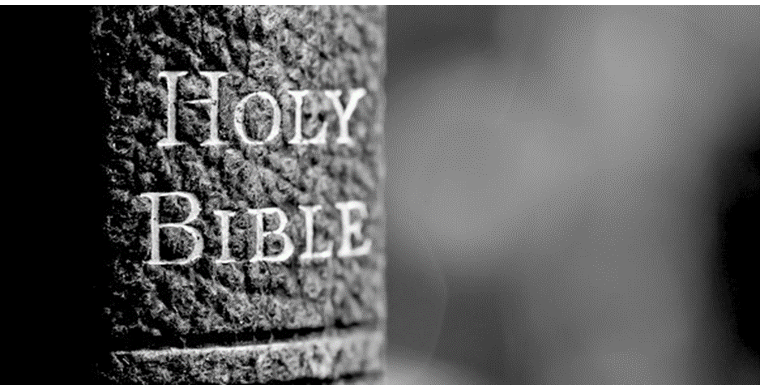UK: The Archbishop who apologises for the Bible
By Peter Mullen
https://www.conservativewoman.co.uk/
September 1, 2021
AS TCW Defending Freedom reported on Sunday, Stephen Cottrell, Archbishop of York, has a new wheeze entitled Simpler, Humbler, Bolder which he will soon present to the General Synod of the Church of England for their approval. Exciting news, eh? Let me begin by quoting from its rapturous contents. It is all about:
'Developing narratives of hope . . . making a difference . . . transforming the unjust structure of society . . . interrelated workstreams . . . lived experience . . . transforming effectiveness . . . communities and hubs . . . initial and ongoing formation . . . a resetting of the compass.'
Over the next ten years, Cottrell boasts that the Church of England will 'create 10,000 new Christian communities and 3,000 worshipping hubs for children and young people.' Thus the thousand-years-old, much-loved parochial system will be revolutionised into a national network of house churches led by lay people; unpaid, of course.
Question: what will happen to theological education and spiritual training, pastoral care and guidance and the celebration of Holy Communion?
Well, I have commented before on the words of Stephen Cottrell, the arch-seculariser who has ascended so far as to receive the title Primate of England. But I could never reach the centre of his mind. At long last this mystery is solved, because the Archbishop has produced his book Dear England which dispels any misunderstandings.
An archbishop he certainly is, but he begins Dear England with a claim to far higher -- in fact infinitely higher -- authority than that. On page 21 he tells us he is writing from heaven itself: 'This book will look at the world through the lens of God.'
Stephen the godlike doesn't have much time for the Bible. Introducing the Old Testament prophets, he says, 'If you ever find yourself getting round to reading them.' Patronising or what? Is that the way for a shepherd to speak to his flock? He has no more respect for his readers' knowledge of the New Testament than he has for our acquaintance with the Old. In fact, he expresses a disdain amounting to contempt when he writes, 'So if you do ever get round to reading the accounts of Jesus's life in the Gospels . . .' I had to rub my eyes. Did an archbishop really say that knowing something about the life of Jesus is optional?
On page 72 Cottrell apologises for the Bible: 'Sorry, I'm quoting from the Bible again.' Is he ashamed of his own sacred scriptures? The sense is of a teenage lad caught looking at a mucky book.
Perhaps I do him an injustice because on page 76 he allows, 'We can therefore at this point, if we wish, open our Bibles.' Then he spoils the effect by adding, 'Although we will not dwell for too long on the teaching.' And it is hardly good manners to assume the same degree of ignorance in others as he finds in himself: 'Nativity plays and Christmas carols are still hugely popular, even if many of us attending don't quite know why.' My granddaughter aged four knows why.
I was wondering why Cottrell wrote this book, and happily I did not have long to wait, for on page 4 he declares his modest ambition: 'I wanted to change the world.' He repeats that sentence again, word for word, on page 5. In case we had forgotten? Anyhow, he will not be alone in his attempt to change the world for he will have a little assistant: 'I believed God wanted, through Jesus and through me, to change the world.'
All this 'change' amounts to nothing more than a general acceptance of the secular obsessions of our times -- socialised medicine, for example. Cottrell is still standing on his doorstep and clapping for the NHS as he tells us, 'We quickly forget what it was like before the welfare state.' I will remind him that in 1948, in the biggest confiscation of private property since Henry VIII's dissolution of the monasteries, the NHS appropriated 1,143 voluntary hospitals with 90,000 beds and 1,545 municipal hospitals with 390,000 beds. After fifty years of the NHS these 480,000 beds had been reduced to 186,000.
Naturally, he is a big fan of the Black Lives Matter (BLM) movement because it 'rubs against the unconscious and disturbs the assumed normalcy (sic) of whiteness.' He complains that 'white hegemony still controls the narrative of the world'. What colour are the Chinese, Your Grace? What colour are the Taliban?
Here and there, the archbishop's naivety approaches the hilarious as when he says, 'In our own society thankfully we enjoy freedom of speech'. But say anything that is not part of the prevailing wokery and you could lose your job, your income and your reputation -- as J K Rowling and others found when they said men cannot have babies.
To compound his deficiency of theological understanding, the archbishop cannot even count in single figures. As every young Confirmation candidate knows, there are three Persons in the Blessed Trinity, but Cottrell speaks of 'a United Kingdom, four countries in one nation, a fascinating Trinitarian model.'
If I were writing a spoof or a malevolent parody, I could not do better than this book.
There is nothing recognisably Christian in Dear England, only the familiar woke agenda cast once more in the face of an ineffably bored public, this time with a slightly awkward ecclesiastical gesture as if Cottrell's aim had been impeded by the folds of his magnificent cope.
Archbishop of York? I would not let him stand at the back of church to give out the hymnbooks.














